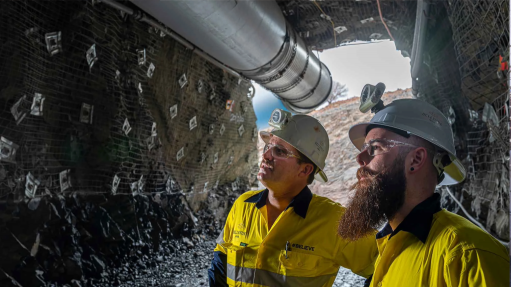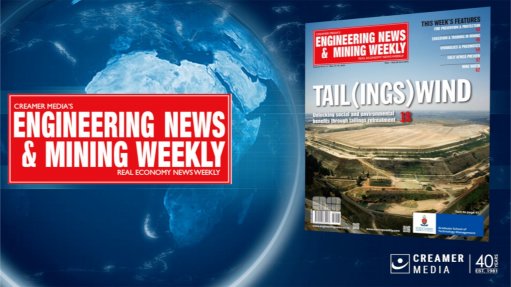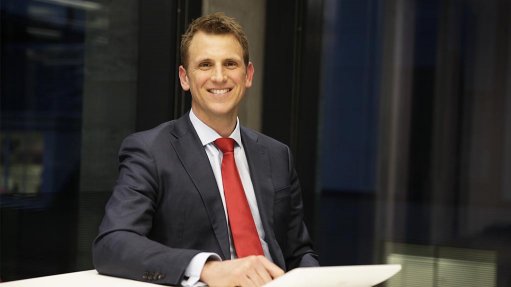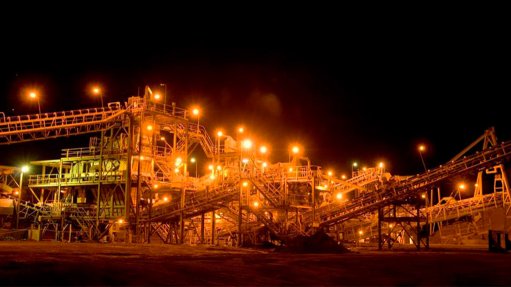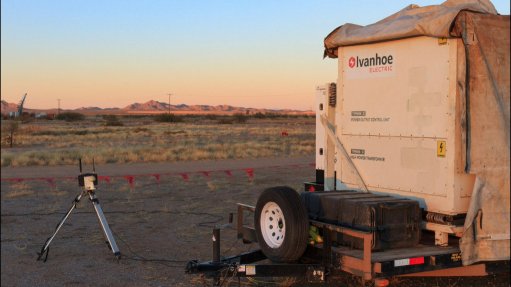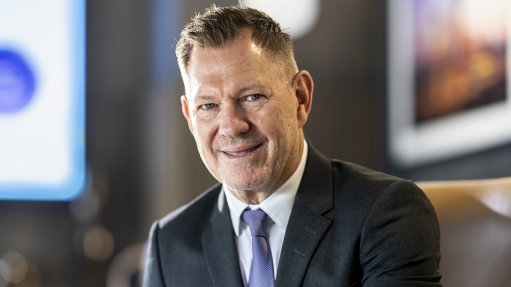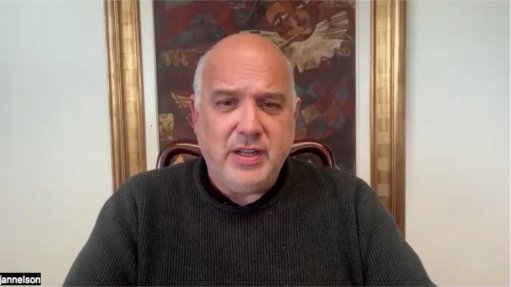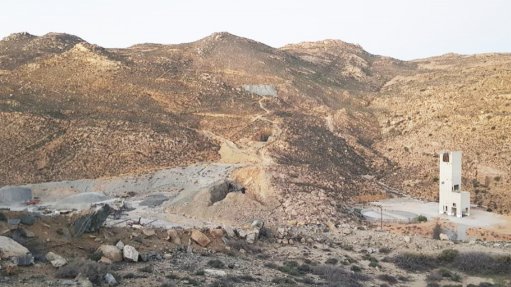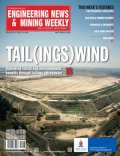'If I were a manager today, I would refuse to deduct garnishee orders' – Godsell
JOHANNESBURG (miningweekly.com) – Former AngloGold Ashanti CEO Bobby Godsell said on Wednesday that if he were still a manager today, he would refuse to deduct garnishee orders, which he believed played a nefarious role in the build up to the Marikana tragedy.
The Business Leadership South Africa chairperson also advocated that further thinking be given to executive pay and fixed executive contracts.
Speaking on day two of the Joburg 2013 Investing in Resources and Mining in Africa conference attended by the who’s who of South African mining, the former mining luminary recalled that the garnishee deduction issue had loomed large in the period of pay tension ahead of the gruesome killing of 34 mineworkers at Marikana in August last year.
Intense discussion had centred on whether rock-drill operators were taking home the R10 500 a month that they were paid or the R2 000 on the payslip.
The substantial deductions turned out, in the main, to be garnishee deductions, on which he believed there should be a national debate.
Garnishee orders are court orders that require employers to withhold part of an employee's wages and to pay the amount instead to that employee’s creditor to settle debt.
“If I were a manager [of a mine] today, I would refuse to deduct garnishee orders,” Godsell said, adding that in such circumstances he would challenge the retailers and the banks to take him to court.
Retailers and bankers should be responsible for their own credit control, and he would refuse to do it for them.
In a sensible world where people took responsibility, mine supervisors should be made aware of employees who were taking home a mere 20% of gross basic pay, instead of this being “a mystical secret of the payroll, which is outsourced to a fancy company in order to cut costs”.
He advocated that payroll companies be obliged to make supervisors aware of the deductions and that employees, in turn, be warned of the unsustainability of uncontrolled credit.
If mineworkers, who were today among the best paid, were experiencing poverty, the country needed to take serious note.
EXECUTIVE PAY
Further thinking was also necessary on executive pay that was made up of small basic pay and high variable pay.
While in theory the take-home pay of executives could vary massively, in practice it did not seem to, which posed questions on how closely company budgets coincided with the long- and short-term incentives of remuneration committee formulae.
Fixed-term contracts for executives were another source of concern.
“When I joined Anglo, I had 30 days notice,” he recalled.
The two factors that moved the share price of AngloGold Ashanti during his 12 years as CEO were the dollar price of gold and the rand-dollar exchange rate – both external factors beyond the control of mining executives.
“I am suggesting a conceptual rethink, so that we can very honestly stand in front of shareholders and boards can stand in front of shareholders and absolutely defend the pay levels of their executives,” Godsell said.
Remuneration committees wanting pay at the 75th quartile was worse than a labour union wanting inflation-indexed wages, he added.
MINING AS NATIONAL ASSET
Godsell recalled that during the anti-apartheid struggle years, mining business leadership and the National Union of Mineworkers (NUM) had been able to develop a sense that the mining industry was a national asset and that it would only benefit the people of South Africa if the mineral wealth could be extracted profitably.
The profitable mining of minerals and metals had become a shared goal, particularly in moments of crisis.
He recalled a productivity deal in which NUM was demanding a double-digit increase at a time when underground production workers were paid less than grocery packers at food retail outlets, and the gold price was at a lowly $300/oz.
A 10% increase was agreed in exchange for workers producing 10% more gold that year so that unit costs could remain static.
“And we did it. For two years that agreement worked,” he recalled, expressing amazement at the failure of employers to use the collective bargaining mechanism available to them.
He urged managers to manage to the best of their ability and cited an example of a manager at AngloGold Ashanti’s Mponeng mine who told the 400 supervisors of the mine every Tuesday morning from 6.45 am exactly how much rock had been broken, the volume of orebody moved, its grade, cost, safety and the gold price to enable them to attain their targeted output.
He queried whether such communication still took place today and encouraged a return of managers communicating directly with workers and not only through union officials.
COMPANIES AS CORPORATE CITIZENS
Companies, as corporate citizens, had duties to society and attendees of the Joburg 2013 Investing in Resources and Mining in Africa conference were urged to sign a citizen’s charter, which committed them to contributing one hour a week towards national upliftment.
“An active manager citizen will be saying it is my job to make sure that my workers understand the wealth-creation process,” he added.
Comments
Press Office
Announcements
What's On
Subscribe to improve your user experience...
Option 1 (equivalent of R125 a month):
Receive a weekly copy of Creamer Media's Engineering News & Mining Weekly magazine
(print copy for those in South Africa and e-magazine for those outside of South Africa)
Receive daily email newsletters
Access to full search results
Access archive of magazine back copies
Access to Projects in Progress
Access to ONE Research Report of your choice in PDF format
Option 2 (equivalent of R375 a month):
All benefits from Option 1
PLUS
Access to Creamer Media's Research Channel Africa for ALL Research Reports, in PDF format, on various industrial and mining sectors
including Electricity; Water; Energy Transition; Hydrogen; Roads, Rail and Ports; Coal; Gold; Platinum; Battery Metals; etc.
Already a subscriber?
Forgotten your password?
Receive weekly copy of Creamer Media's Engineering News & Mining Weekly magazine (print copy for those in South Africa and e-magazine for those outside of South Africa)
➕
Recieve daily email newsletters
➕
Access to full search results
➕
Access archive of magazine back copies
➕
Access to Projects in Progress
➕
Access to ONE Research Report of your choice in PDF format
RESEARCH CHANNEL AFRICA
R4500 (equivalent of R375 a month)
SUBSCRIBEAll benefits from Option 1
➕
Access to Creamer Media's Research Channel Africa for ALL Research Reports on various industrial and mining sectors, in PDF format, including on:
Electricity
➕
Water
➕
Energy Transition
➕
Hydrogen
➕
Roads, Rail and Ports
➕
Coal
➕
Gold
➕
Platinum
➕
Battery Metals
➕
etc.
Receive all benefits from Option 1 or Option 2 delivered to numerous people at your company
➕
Multiple User names and Passwords for simultaneous log-ins
➕
Intranet integration access to all in your organisation







